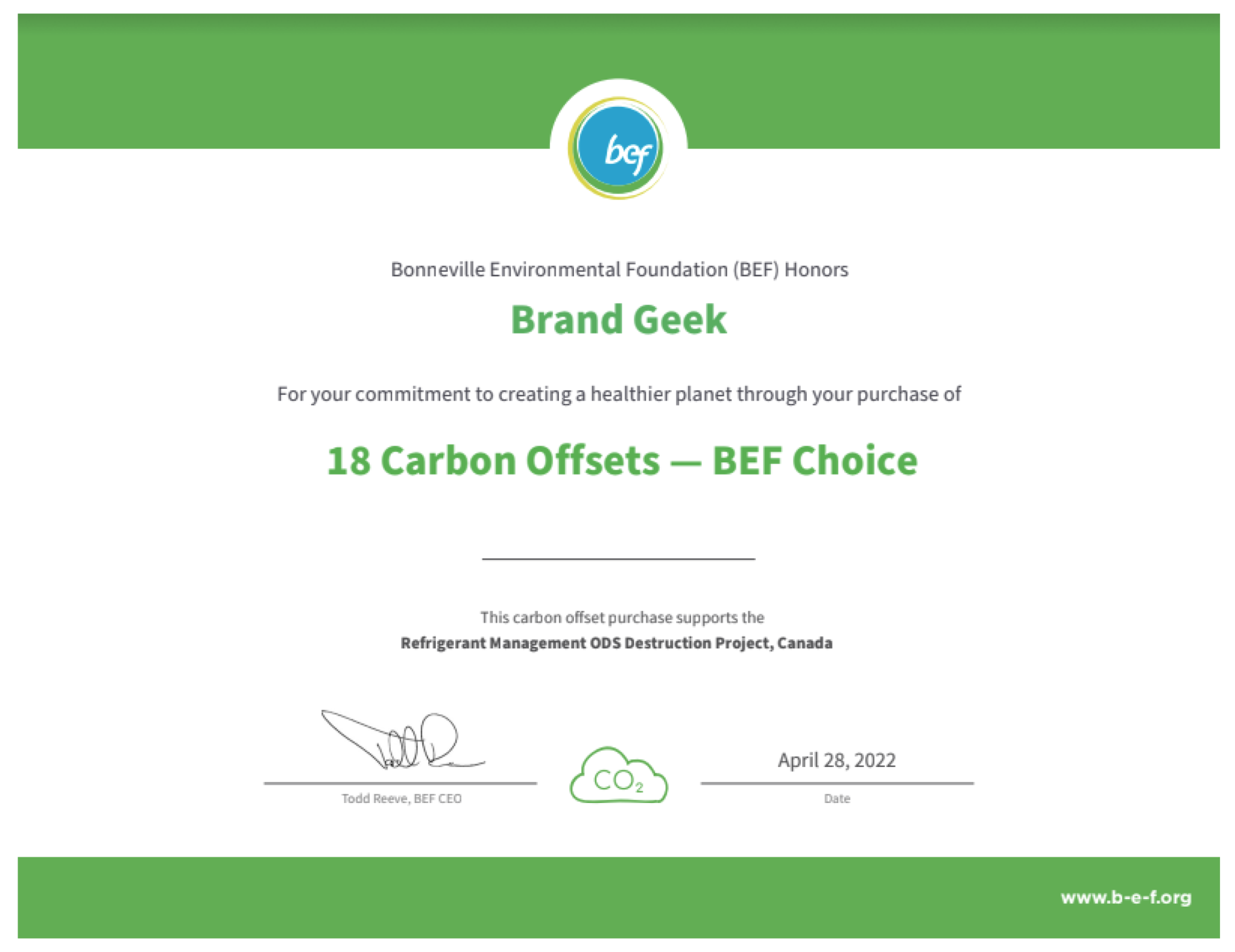Brandgeek proudly supports Mountain Area Preservation and is humbled to be…
Sustainable Brands 2012 Day 2
The morning plenary sessions at day 2 of Sustainable Brands ’12 began with what self-described chief insurgent Hunter Lovins affectionately referred to as her “show.” As usual, Hunter’s show was in-your-face and hysterically funny. In fact, I laughed so hard several minutes passed before realizing that I hadn’t taken a single note! Perhaps it’s best that way. Hunter’s “show” is much better experienced than read about. That said, a few points did manage to stick with me: (1) If big companies continue business as usual we will become obsolete; (2) You know you’re on the right path when Fortune magazine recognizes the value of being a responsible business; and (3) Natural Capitalism Solutions has compiled 41 case studies that demonstrate the business case for sustainability and there are over 200 business schools have sustainability programs (partial list here.) Hunter, who now works for the first (and best!) Sustainable Business MBA program — at BGI — encouraged everyone to stand up and fight for our right to save the world!
With that, Hunter introduced world-saving Brand Geek favorite, Kevin Williams, Principal Brand Strategist, Pure Branding. (For other mentions of Pure Branding see here and here.) Kevin shared that he recently met with a philanthropist who wants to change the (very badly broken) food system in America. That person retained Pure Branding to discover how to do this. The first thing they learned was that although most Americans have lost our connection with food, the local food movement is functioning well and experiencing exponential growth. The emergence of Greenhorns – young people committed to supporting local food movement — has filled the gap left by aging and dying family farmers whose offspring have chosen to pursue other careers.
America’s One Stop Shopping mentality does not apply to local food: it is not convenient; it is definitely not less expensive and it’s not even confirmed that it’s more sustainable. So PureBranding wanted to know WHY growth is happening in the local food movement.
Historically speaking, food is core to our identity. Food used to be a family affair built around creating appreciation & reciprocity, which are the cornerstones of every part of the sustainability movement. Henk Camper of SVP Business & Social Purpose, Edelman shared a South African word yesterday, Ubuntu: I am because we are. This explains some of what is happening with the local food movement. Right now America is in a negative feedback loop. Kevin postulated that what we are seeing in the local food system is not a Revolution, it’s a Renaissance creating a system that fosters appreciation + reciprocity. The CSA model is a perfect example: 78% of people who participate in CSAs have at least one meal each day with their families. Kevin encouraged us all to participate in a Renaissance of Reciprocity so we all can participate in making the world a better place and be happier doing it.
Unfortunately, I missed the video presentation by Umair Haque, the Director of Havas Media Labs. (Sorry, Umair!)
Next to inspire was Andrew Winston, co-author of the best-selling book Green to Gold. He reminded us that we need to cut emissions by 80% by 2050 and asked us how deep change needs to be for this to happen? The answer he said is very, very, very deep. We need to set realistic goals based on science, but very few companies are doing so. Some bigger not traditionally green companies are off to a good start. One surprising (to me at least) leader in this respect is Ford Motor Co., which has had climate scientists on staff since the mid-2000’s. Ford has created “glide paths to align its product plans with emission reductions. Unilever, a known leader in the field, has a plan to halve its environmental footprint by 2020 and in 2011 Unilever’s CEO publicly stated, “if you don’t share our values, don’t by our stock.” In May, 2011, Puma announced the initial results from its first Environmental P&L.
Andrew said that we need to change how we define ROI & what we measure. He then prescribed seven behaviors that, in combination, will help us move the needle and avoid climate catastrophe: (1) reality based goals; (2) heretical change; (3) greatness then profits; (4) smarter valuation/investment models (nuanced ROI); (4) open partnering approach; (5) pro-sustainability climate policy; (6) deep engagement; and (7) dedication of significant internal resources. Sounds like a good plan to me.
Jeff Rice Director of Sustainability for Wal-Mart shared that Wal-Mart’s Sustainability Index has affected enormous change. Wal-Mart buys and sells merchandise, but that has to be sustainable or it won’t be real. Greening Wal-Mart’s fleet and going solar are nice, but they are ancillary to Wal-Mart’s core business, about which Jeff is most concerned. Wal-Mart has 200,000 customers per week along with 100,000 direct suppliers, and that is where real change can and must take place, according to Jeff. In 2007, Wal-Mart announced its Sustainability 360: a company-wide emphasis on engaging Wal-Mart’s operations, suppliers, communities, customers, associates in sustainability and to sell products that sustain communities and the environment. YES!
I was so stupefied by the information being collated, compressed and expanded by Quid co-founder, Sean Gourley, that I sat there mouth agape and failed to take even a single note. Of course, the analysis of American Express’s intellectual property (IP) was most exciting to me. Well, that and the fact that Hunter shared that Bard is working with Quid to cull all the data on sustainability which could then be viewed on macro and micro levels. Go Quid, Go!!
Christopher Lukezic from Airbnb took the stage next, beginning by asking who’d heard of collaborative consumption. The term “collaborative consumption” was coined by Marcus Felson and Joe L. Spaeth in their paper “Community Structure and Collaborative Consumption: “A Routine Activity Approach” published in 1978 in the American Behavioral Scientist. The internet has made collaborative consumption easier and more prevalent. Airbnb has an ecosystem comprised of travelers and hosts. Hosts create access to markets (space they own, be it a house, island, or tree house!) and users thrive on that access.
Fast Company named Airbnb one of the 50 most innovative companies in 2012 and recently published story called “Airbnb Saved My Life.” Christopher said that what makes collaborative consumption work is trust. As a company, Airbnb strives to know its customers and develop trust among them. It recently opened offices in 6 new cities in order to better develop relationships with its users and to foster community, which it thinks of it as the communities in which it operates as well as each user (be it host or traveler) who uses its services. Airbnb also strives to improve local economies. With Airbnb travelers and hosts infuse the local economy with revenue. When you use Airbnb you use it for a rational reason but it also helps break down cultural barriers and connects people in a real way.
Suzanne Shelton from Shelton Group closed out the morning plenary session with an engaging (as always) analysis of The Power of We. By way of example, Suzanne shared a story about 4 brands coming together to create water conservation solutions: Kohler, Lowes (Shelton clients), P&G and Bosch united to tackle the pressing issue of water conservation, understanding that knowledge alone does not change behavior. Kohler and Lowes expressed frustration at being unable to change consumer behavior as they would like to. Suzanne helped them recognize that they cannot educate, scare or trick people into behavior changes. Instead, we have to wake people up to the effects of their automatic behaviors so they can make a conscious choice to change. This happens by making the problem visual, making it uncomfortable to give them a specific, simple action to take. Shelton Group donated services to create a (totally kick-ass!!) PSA campaign: Wasting Water is Weird. Rip the Drip is the “spokes creep” who has his own Twitter handle (@RipTheDrip) via which his brandparents interact with him. Shelton got TV spots on 290 stations in 121 markets resulting in 432 million impressions, and far more importantly, a 29% behavior change amongst viewers, which is a highly commendable ROI! The lessons Suzanne’s team learned from this engagement were: (1) you don’t have to go it alone, we are stronger together than we are on our own so — Collaborate! (2) We must be disruptive! (3) When multiple brands are involved you can take greater creative risks! Suzanne’s excitement about this type of collaboration was apparent, especially because its application is universal — it can be applied to food waste, product disposal and a myriad of other problems that consumers have identified as needing to be solved by business.
Collaboration is key! And, it’s an acronym for Companies Overcoming Lotsa Little Adversities By Organizing ‘Round Actions That Incentivize Organized Niceness! 🙂 Collaborate on, my friend.






Comments (0)